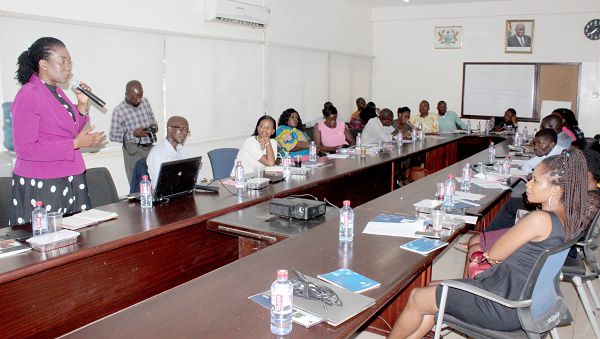
Government urged to implement national population policy
The Executive Director of the National Population Council (NPC), Dr Leticia Adelaide Appiah, has stated that if the country is to derive dividends from its youthful population, then it was time bold steps were taken to implement the national policy on population.
She said if properly implemented, the policy would help to ensure that families were planned properly and a productive labour force created for national development.
Advertisement
“A comprehensive national population policy was drafted in 1969 and reviewed in 1994 but it is not being used.
As of 1969, the policy set a target that by the year 2000, the growth rate of the country’s population should be reduced to 1.7 per cent, but we are still around 2.5 per cent.
“Implementers did not execute the policy so we failed to achieve our target. The policy is still there but both politicians and professionals are failing to implement it,” she stressed.
Workshop
Dr Appiah said this at a one-day training workshop organised by the NPC for 40 journalists in Accra yesterday.
The Country Director of the National Population Council, Professor Augustine Ankomah, and the Chief Executive Officer of Ghana Social Marketing Foundation (GSMF), Mr Alex Bampoe, were the resource persons.
The workshop was attended by journalists from both the print and electronic media organisations.
It was focused on building the capacities of media practitioners on ways to effectively report on population and family planning issues.
Issues discussed at the training session included ensuring effective family planning methods, preventing teenage pregnancy, proper spacing of children, limiting the number of children and deriving dividends from the country’s youthful population.
The policy
Ghana was the third African country to adopt a comprehensive population policy in 1969. It was on the theme: “Population Planning for National Progress and Prosperity.”
The 1969 Population Policy aimed at reducing the country's population growth rate from 1960 to 1970 which stood at 2.4 per cent per annum to about 1.7 per cent by the year 2000.
The target set has not been achieved as the population growth rate is currently about 2.5 per cent per annum.
Encourage family planning
Dr Appiah said family planning had cross-cutting implications for the country for which reason there was the need for stakeholders to get involved in promoting it and work at reducing the rate of population growth.
Furthermore, she said it was important to motivate families to shift their goals of reproduction from having many children to small numbers of children who would be proactive in future.
That, she said, required that teenage pregnancy and early parenthood were discouraged while proper spacing of children and giving birth to limited number of children were encouraged.
Sensitisation
For his part, Prof. Ankomah said the country would derive more benefits from the youthful population if measures were put in place for families to have fewer children.



